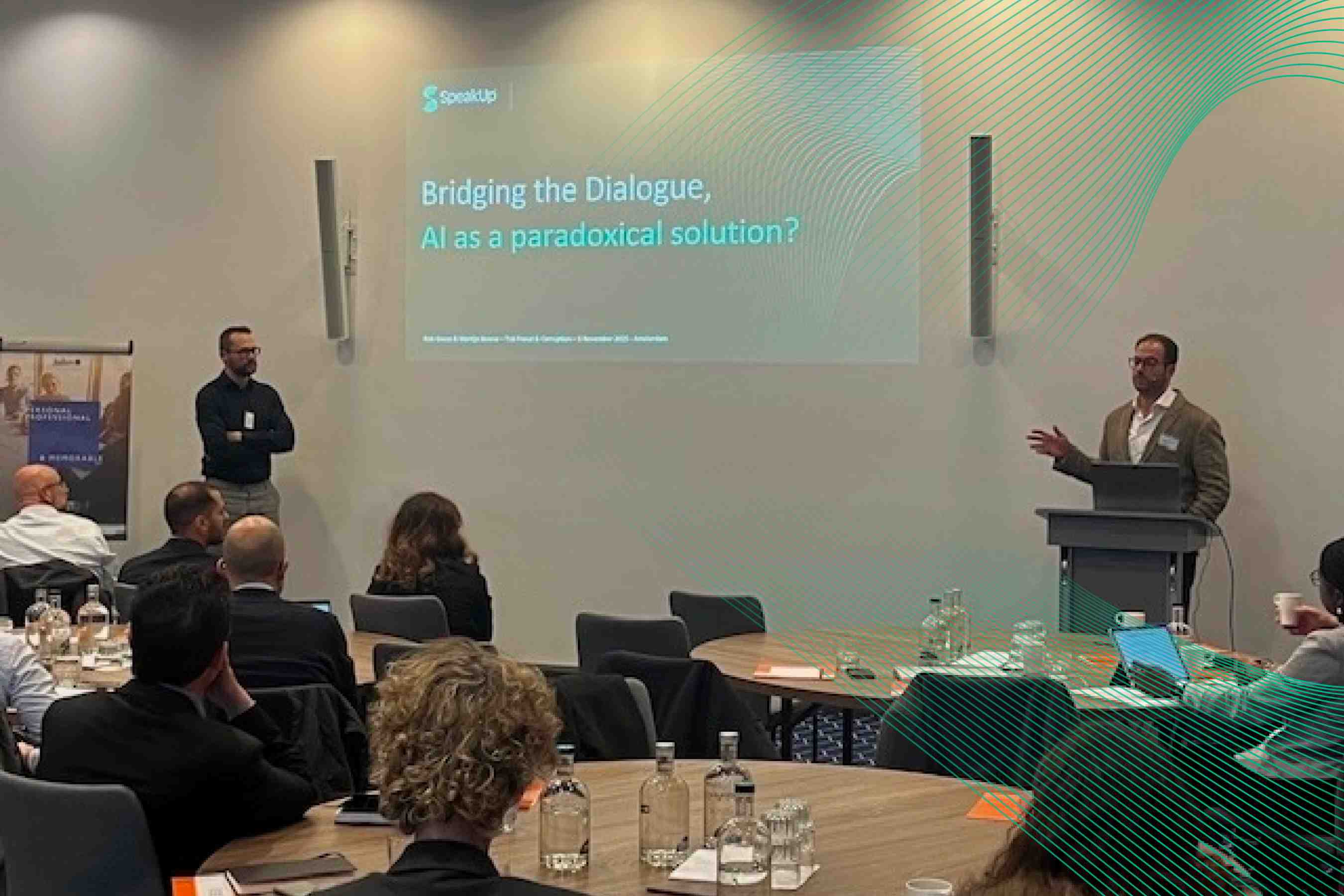Bridging the Dialogue: AI as a Paradoxical Solution?
How AI helps compliance teams reach their goals by making dialogue more human and trustworthy at scale, supporting faster, fairer, and more consistent investigations.

We recently attended the 26th Corporate Fraud & Corruption Forum in Amsterdam. Here are the highlights from the session I presented with Rob Greco, our Head of Legal, on how AI can help compliance teams achieve their goals by making dialogue more human, consistent, and effective.
Why silence corrodes trust
Every organization makes mistakes. What corrodes integrity is not the error itself, it is the silence that follows. When dialogue stops, trust collapses, and markets rarely wait for verdicts. The valuation plunge at WeWork and the direct cost impact around the Boeing 737 MAX show what happens when transparency gives way to avoidance.
Proactivity changes outcomes
Ralph Lauren chose to self-report bribery and avoided significant penalties. Nike strengthened its internal whistleblowing culture and used it to renew leadership standards and accountability. In both cases the conversation stayed inside long enough to set facts, process, and tone.
Two parallel cases, two very different results
At Astronomer, a relationship between the CEO and a direct report surfaced on social media first. The response became reactive, timelines played out in public, and speculation filled the gaps.
At Nestlé, a comparable issue arrived through an anonymous ethics hotline that had been in place for years. The process stayed clear, fair, and internal. Leadership acted, confidence held, and the organization kept control of the narrative. The difference was where the first conversation happened.
The human limitations of dialogue
True dialogue requires two sides, yet large multinationals face real constraints. You cannot expect investigators to be available 24 hours a day, in every language, with perfect consistency. Call center agents and live interpreters can help, but they introduce delays, inconsistency, and risk of information loss. They often lack the mandate to act or advise, and they are not steeped in company specifics.
Can AI play a role in better dialogue?
Artificial Intelligence can make dialogue scalable, consistent, and empathetic without sacrificing quality. Today AI can:
· Be available instantly 24 hours a day in 50+ languages.
· Offer consistent performance without fatigue.
· Be informed by company policies and values.
· Capture nuance with structured empathy that focuses on understanding rather than distraction.
· Summarize and distill key facts instantly.
· Generate multilingual transcripts and voice-scrambled recordings.
· Pre-fill core case attributes to save investigators hours of repetitive work.
Used responsibly, AI does not replace human judgment. It clears the path for it. Intake becomes careful, consistent, and confidential, and investigators regain time for resolution, fairness, and cultural learning.
The paradox to consider
Whistleblowing is a human-to-human trust problem. The paradox is that Artificial Intelligence may help create the conditions for that trust by ensuring no voice goes unheard, no report is lost in translation, and no dialogue is left unfinished. Will the human-to-human trust problem be paradoxically solved by Artificial Intelligence?

